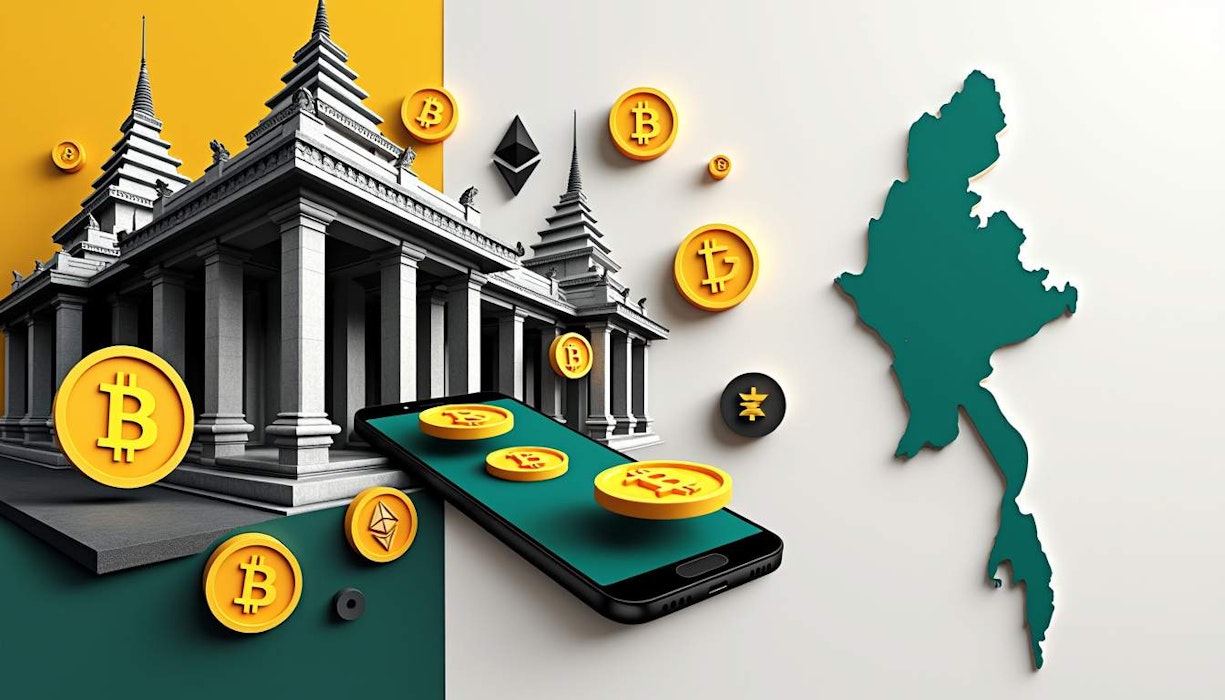As a country grapples with the chaos of political upheaval, Myanmar's innovative approach using digital currencies like the Digital Myanmar Kyat (DMMK) offers a glimpse of hope. This article discusses how these currencies can help bypass authoritarian regimes, stabilize economies, and bolster efforts towards democratization. However, it’s essential to weigh both the potential benefits and challenges of integrating virtual currency platforms into Myanmar's quest for a more democratic and stable future.
Understanding the Digital Currency Landscape in Myanmar
Myanmar has faced its fair share of political turmoil, but the launch of the Digital Myanmar Kyat (DMMK) by the National Unity Government (NUG) is a crucial step toward economic stabilization and democratization. The DMMK is pegged to the traditional kyat, similar to other stablecoins like Tether (USDT). It serves as a reliable medium for transactions during turbulent times.
Digital currencies such as DMMK are instrumental in circumventing state-controlled financial systems. They allow citizens to support preferred entities without falling prey to government surveillance. This financial independence is crucial for pro-democracy activists and everyday citizens alike, enabling them to engage in economic activities free from fear of reprisal.
Additionally, the NUG's initiative to create an online banking platform called Spring Development Bank aims to serve supporters and expatriates while providing stability amid an unstable traditional currency. The kyat has plummeted since the coup, making alternatives necessary.
Navigating Risks Associated with Virtual Currencies
While there are clear advantages to adopting digital currencies, significant risks accompany them. One primary concern is potential government manipulation; despite their ability to bypass conventional systems, digital currencies are not immune to debasement—especially if pegged—to undermine their intended purpose.
Legal hurdles also pose considerable threats. The Central Bank of Myanmar (CBM) has issued stern warnings against unregulated digital currencies, creating an adversarial atmosphere for users of such platforms. Those engaging with or promoting these currencies face possible legal action and severe repercussions.
Moreover, inherent volatility makes many digital currencies unsuitable for long-term use; rapid fluctuations can complicate financial planning in politically unstable contexts.
A Clear Path Forward: Myanmar’s Democratic Roadmap
Despite existing challenges, there remains a steadfast commitment towards achieving democracy in Myanmar. The roadmap outlines three distinct phases aimed at establishing foundational reforms leading up to mature democratic practices.
Phase 1: Establishing Foundations (Years 1-2)
- Initiate dialogues involving diverse ethnic groups.
- Transition conflicting factions into political parties.
- Empower local governments.
- Launch programs for national reconciliation.
- Amend laws to enhance democratic processes.
Phase 2: Expanding Democratic Institutions (Years 3-5)
- Reform judiciary systems.
- Create an independent electoral commission.
- Foster media freedom.
- Develop inclusive economic policies.
Phase 3: Achieving Democratic Maturity (Years 6-10)
- Conduct elections under independent supervision.
- Continue military reform focused on civilian affairs.
Summary: Support Needed for Successful Implementation
The adoption of digital currencies like DMMK represents a courageous move towards stabilizing an economy while pushing for political reform. However, this journey faces numerous obstacles including potential government control over currency systems and legal ramifications for users.
For these initiatives' success it is imperative that international allies provide assistance; through collective efforts involving digital currency adoption alongside comprehensive reform strategies—Myanmar can forge ahead towards a brighter future.
